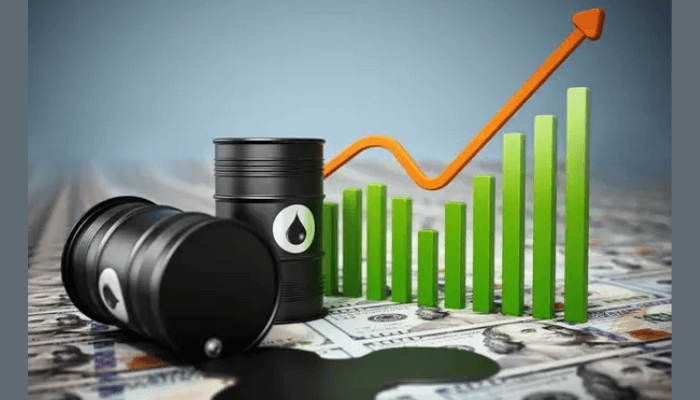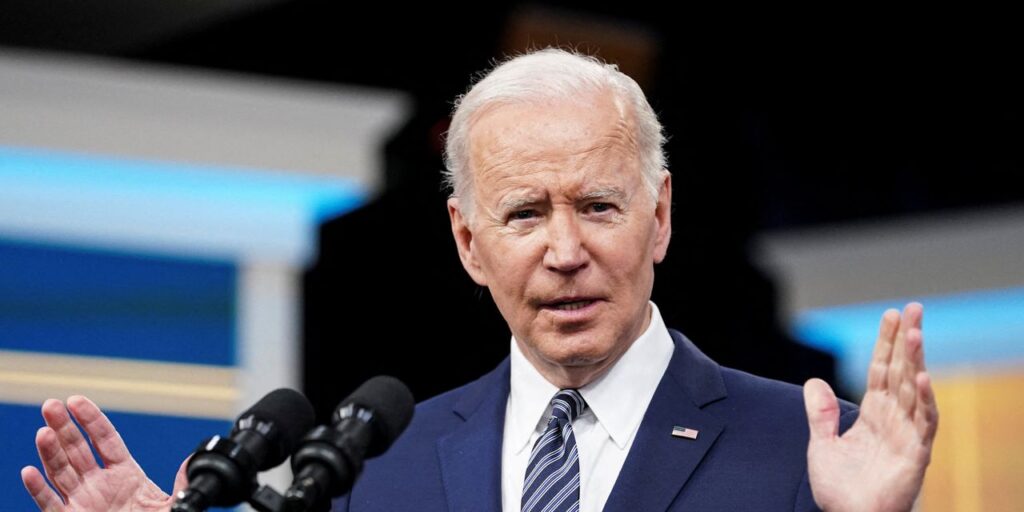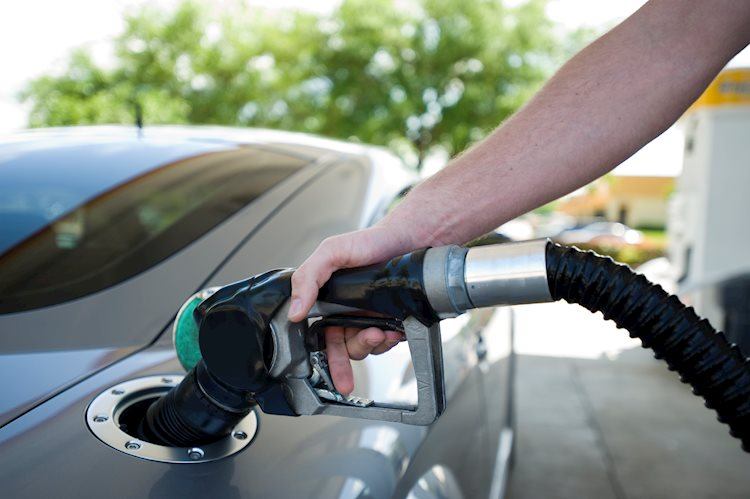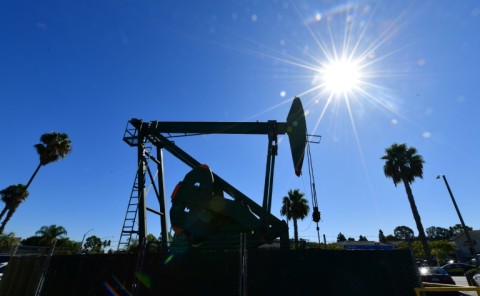A sharp drop in oil prices to around $60 per barrel has cast a shadow over the record-breaking shareholder payouts from Western energy supermajors, according to a recent report from Rystad Energy.
The independent energy research firm warns that unless market conditions improve, the industry may be forced to slash both investment and investor returns to stabilise balance sheets.
In a release sent to BusinessDay, Rystad Energy sounded the alarm over unsustainable payout levels as oil prices fall and remain stubbornly low.
The firm noted that the cash flow cushion that allowed majors such as BP, Chevron, ExxonMobil, Shell, TotalEnergies, and Eni to reward shareholders lavishly in 2024 is rapidly eroding.
“Record breaking shareholder payouts are now under threat as oil price hovers at $60,” Rystad said. “Western energy supermajors are faced with an increasingly difficult challenge – either keep their promise of returning ever-higher shareholder returns or risk spurning investors to save their balance sheets.”
Read also: Oil prices settle up at 2-week high as US, China ease tariffs – Reuters
Cash outflows outpacing inflows
In 2024, six largest Western oil and gas companies distributed a record $119 billion to shareholders through dividends and buybacks. This surpassed the previous record set in 2023.
However, with oil prices declining and operational cash flows weakening, Rystad cautioned that companies may need to trim payouts by as much as 20 percent–40 percent in 2025 to maintain financial stability.
The payout ratio – shareholder distributions as a percentage of corporate cash flow from operations (CCFO) – reached an unprecedented 56 percent in 2024.
That figure is far above the historical range of 30 percent–40 percent observed between 2012 and 2022. If payouts remain unchanged this year, that ratio could balloon to over 80 percent, a level Rystad deems ‘highly unsustainable.’
The firm estimated that unless oil prices rebound or cash flows dramatically improve, shareholder returns could fall to between $70 billion and $95 billion this year, well below the $119 billion seen in 2024.
Cash reserves draining
To support the recent surge in shareholder distributions, many companies have dipped into their cash reserves. Rystad noted that aggregate reserves peaked at nearly $160 billion between the third quarter (Q3) of 2022 and the first quarter (Q1) of 2023 but have since declined to just above $120 billion by Q1 2025.
If current payout levels are maintained, those reserves will continue to shrink, increasing vulnerability to future market shocks.
Espen Erlingsen, head of upstream research at Rystad Energy, warned that “recent market volatility has left the majors with few economically attractive options that both allow for reinvestment while maintaining a competitive capital returns framework.”
“Although the drop in oil prices creates downside risk for shareholder returns, the majors will remain reluctant to scale back their capital returns framework in the near term,” Erlingsen added. “Buybacks—typically more flexible than dividends—are likely to be the first lever pulled.”
Company responses mixed
A survey on X (formally Twitter) by Rigzone, a global research firm, showed the firm reached out to the six companies highlighted in the Rystad report for comment. Shell declined to respond. As of press time, BP, Chevron, Eni, ExxonMobil, and TotalEnergies had not replied.
However, public statements from company executives suggest a cautious optimism—and a determination to stick to shareholder commitments, at least for now.
Sinead Gorman, CFO of Shell, said during the company’s Capital Markets Day in March that “our dividend remains a financial priority” and is breakeven at around $40 per barrel. Shell also remains committed to buybacks, even in a $50 per barrel environment, by leveraging its balance sheet if necessary.
BP has similarly affirmed its confidence in maintaining and growing its dividend, targeting a minimum 4 percent annual increase. The company also confirmed plans for a $0.75 billion share buyback in Q2 2025, following the completion of a $1.75 billion buyback in April.
Patrick Pouyanne, CEO of Total Energies, emphasised during an April board meeting that the company’s dividend would increase by 7.6 percent in 2025. Despite Brent crude dipping below $70, he said the firm would proceed with a $2 billion share buyback in Q2.
Read also: Nigerian Eurobonds rebound as oil prices recover, trade tensions ease
Eni, ExxonMobil, and Chevron Stay the Course
Eni, in statements posted in May, revealed plans for a new share buyback programme worth up to $3.9 billion and a dividend increase to €1.05 per share (around $1.19). Chief executive officer Claudio Descalzi emphasised the company’s ‘financial discipline’ and commitment to value creation.
ExxonMobil returned $9.1 billion to shareholders in Q1 alone, split between $4.3 billion in dividends and $4.8 billion in buybacks.
The company’s CEO insisted that Exxon is “built for this,” referencing eight years of restructuring that, in his view, have prepared the company for a low-price environment.
Chevron, for its part, returned $6.9 billion to shareholders in Q1. CEO Mike Wirth said the company’s strong balance sheet and disciplined capital management will continue to deliver “industry-leading free cash flow growth by 2026,” despite current challenges.
Investor pressure, risk
With buybacks more easily curtailed than dividends, analysts expect companies to prioritise dividend sustainability while adjusting repurchase programmes in response to weaker cash generation.
Several of the majors, including BP, Eni, TotalEnergies and Shell, have formally stated payout ratio targets linked to CCFO. Adhering to these policies amid declining cash flows would naturally force a reduction in distributions.
“Applying these payout targets to current cash flow levels, total shareholder payouts could fall by approximately 20 percent to 40 percent from $119 billion to around $70 to $95 billion in 2025,” Rystad stated.
This would represent a notable shift from the last two years, which saw energy giants enjoy windfall profits and investor praise following Russia’s invasion of Ukraine and the subsequent spike in commodity prices.
Now, with geopolitical instability and macroeconomic uncertainties continuing to weigh on oil markets, investor sentiment may turn volatile if returns are slashed.
Oladehinde Oladipo
Dipo Oladehinde is a skilled energy analyst with experience across Nigeria’s energy sector alongside relevant know-how about Nigeria’s macro economy.
He provides a blend of market intelligence, financial analysis, industry insight, micro and macro-level analysis of a wide range of local and international issues as well as informed technical rudiments for policy-making and private directions.
https://businessday.ng/energy/oilandgas/article/oil-price-slide-threatens-bumper-shareholder-payout/




